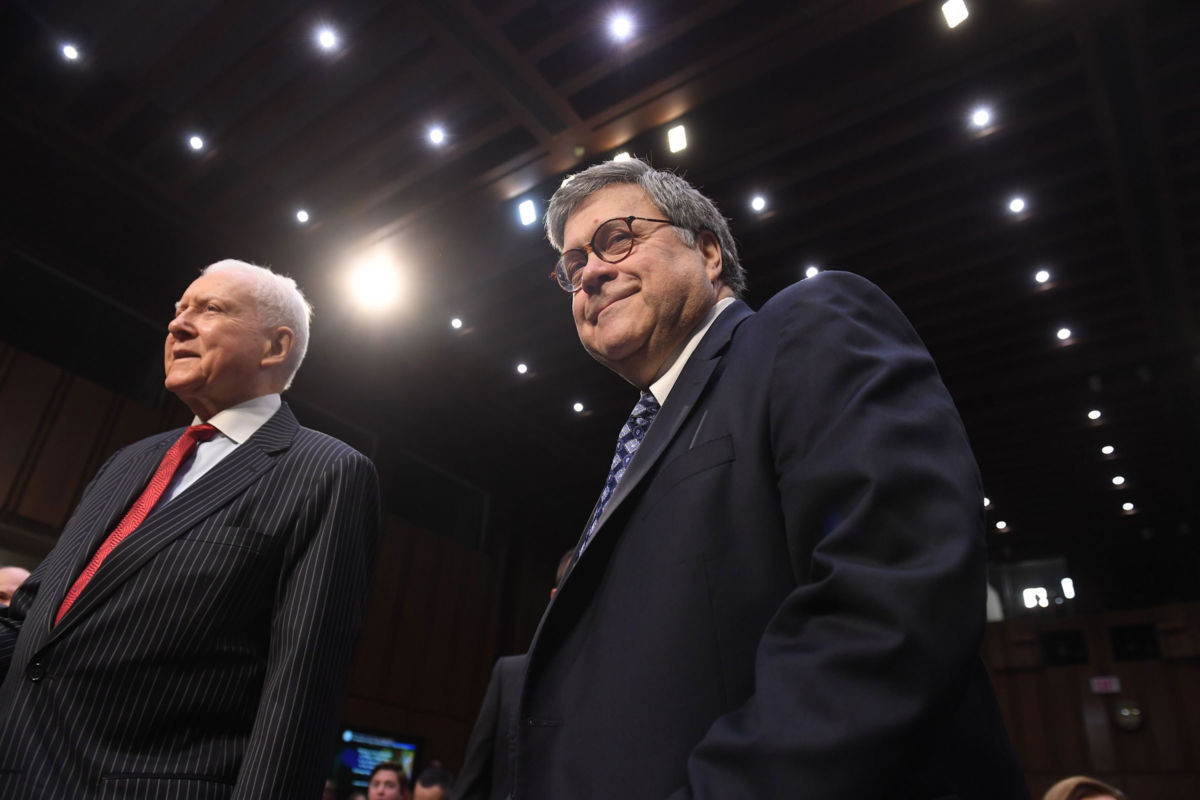Attorney General William Barr will not recuse himself from overseeing special counsel Robert Mueller’s investigation into allegations of collusion between President Donald Trump’s 2016 presidential campaign and the Russian government, a Justice Department spokeswoman said Monday.
Barr’s confirmation for a second stint as the nation’s top law enforcement officer came under scrutiny given his previous statements about the special counsel’s investigation. Barr reportedly sent an “unsolicited memo” to the Justice Department last year, in which he expressed skepticism about parts of Mueller’s investigation. He said that Mueller’s inquiry into potential obstruction of justice by Trump was based on a “fatally misconceived” theory that would threaten the presidency and the executive branch.
During his Senate confirmation hearings last month, Barr refused to say whether he would recuse himself from any role in Mueller’s probe but noted he would allow Mueller to complete his investigation and make as many of its findings public as possible. Barr was confirmed by a vote of 54 to 45 in the Senate. Mueller is widely expected to wrap up his investigation in the comings weeks.
Justice Department spokeswoman Kerri Kupec said Monday that Barr would not step aside from overseeing Mueller’s inquiry and that the department’s ethics team concurred, CNN reported. Barr previously told lawmakers he would seek counsel from ethics officials on the recusal issue.
“Following General Barr’s confirmation, senior career ethics officials advised that General Barr should not recuse himself from the Special Counsel’s investigation,” Kupec said. “Consistent with that advice, General Barr has decided not to recuse.”
Deputy Attorney General Rod Rosenstein, who appointed Mueller to oversee the Russia probe in 2017 after former Attorney General Jeff Sessions recused himself from the inquiry, is expected to leave the department later this month. Sessions was ousted by Trump from the Justice Department one day after November’s midterm elections, putting an end to a tumultuous partnership between the commander-and-chief and senior cabinet member that was marked by repeated public humiliations ever since Sessions announced he would recuse himself from any investigation into the 2016 campaign.
Until he steps down from the Justice Department, Rosenstein plans to oversee Mueller’s investigative and prosecutorial work. Trump has announced plans to nominate Department Transportation Secretary Jeffrey Rosen to replace Rosenstein as the No. 2 official at the Justice Department, but another official could be named to the post on an acting basis.
The former head of the U.S. Office of Government Ethics under President Barack Obama, Walter Shaub, criticized Barr’s decision.
“The most important reason for Barr to recuse is not the ethics rules but the illegitimacy of his predecessor’s firing for refusing to stop an investigation of POTUS,” Shaub wrote on Twitter. “Do not misread the ethics officials as having weighed in on that issue. They did not.”
Join us in defending the truth before it’s too late
The future of independent journalism is uncertain, and the consequences of losing it are too grave to ignore. To ensure Truthout remains safe, strong, and free, we need to raise $43,000 in the next 6 days. Every dollar raised goes directly toward the costs of producing news you can trust.
Please give what you can — because by supporting us with a tax-deductible donation, you’re not just preserving a source of news, you’re helping to safeguard what’s left of our democracy.
